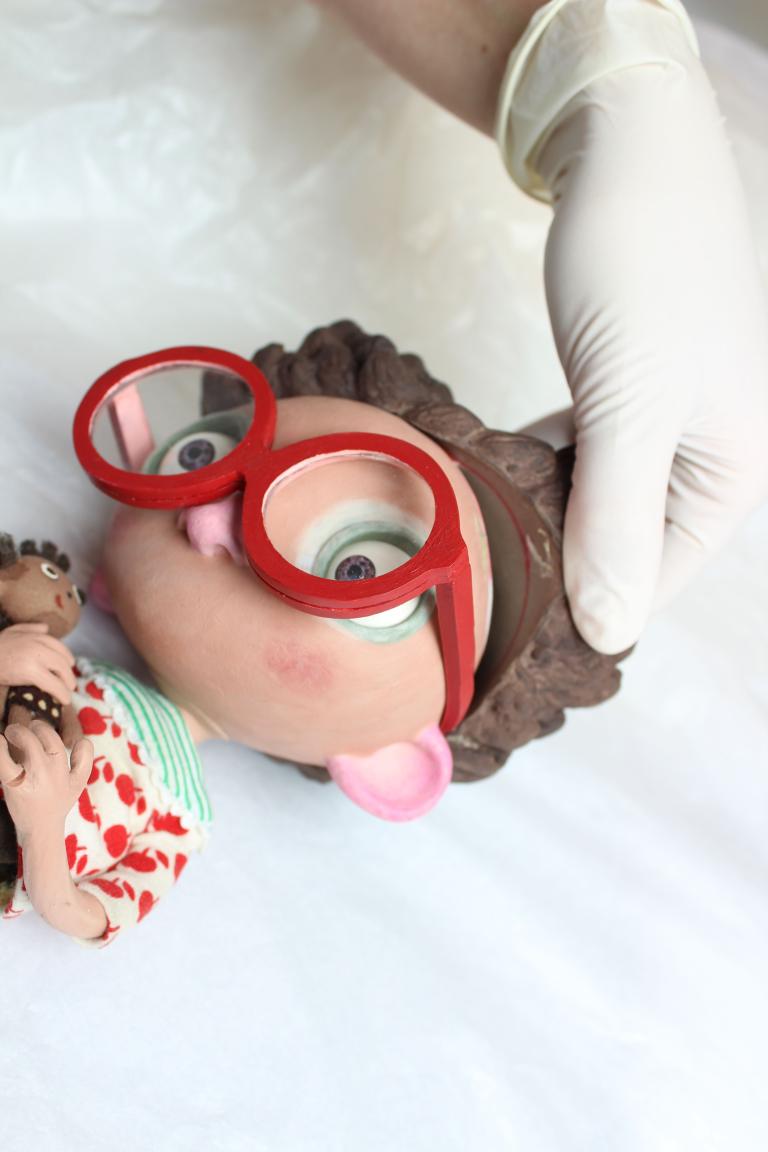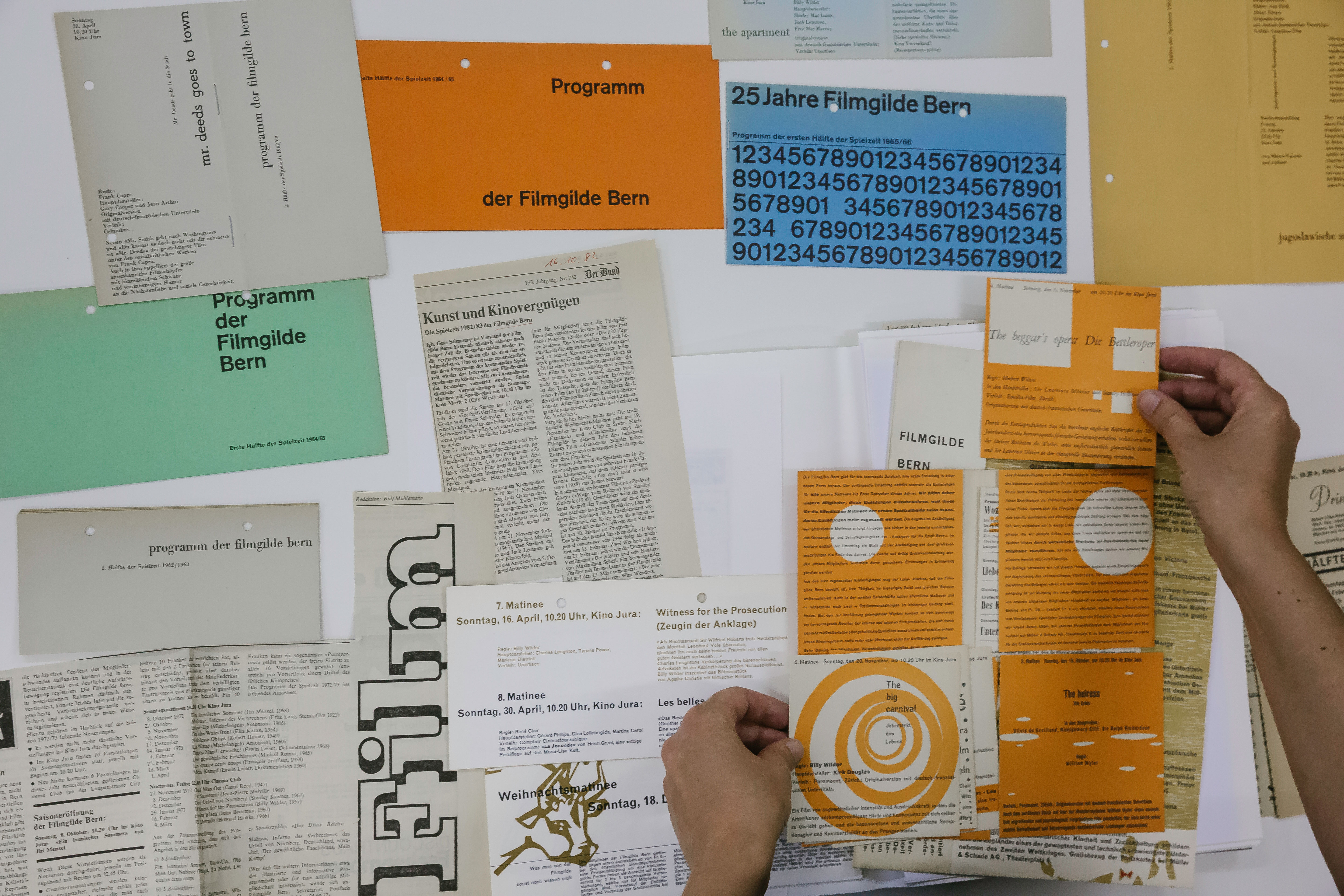Within its Non-Film Department, the Cinémathèque suisse preserves a wide range of collections that complement and document films and, more broadly, cinema history : institutional archives, private collections, storyboards and scripts, correspondence, books and magazines, documentary files, photographs and posters, press files, promotional material, animated film cels, drawings and paintings, as well as three-dimensional objects such as cinematographic equipment, set elements, costumes, animated film puppets and trophies. Divided between the two Research and Archiving Centres in Penthaz and Zurich, this department comprises five key areas detailed below.
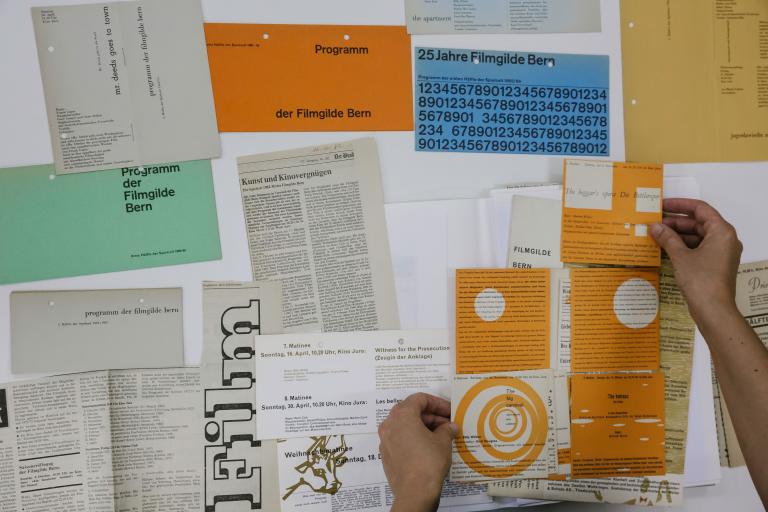
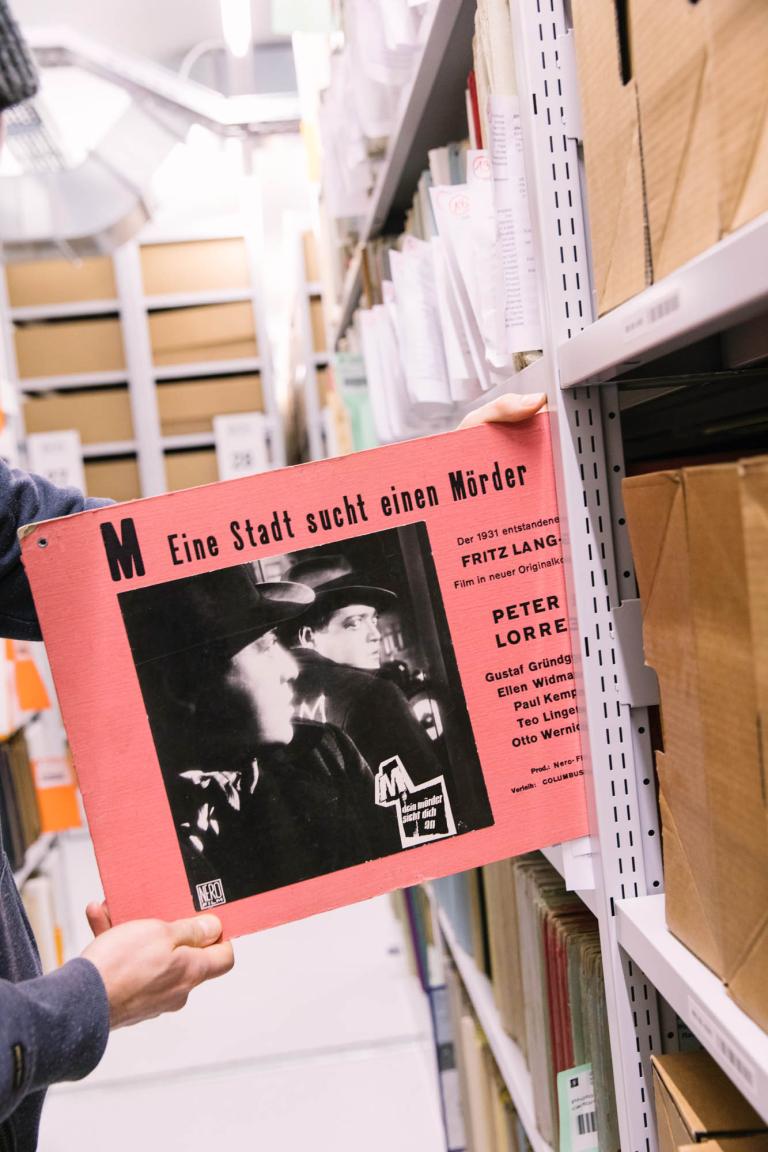
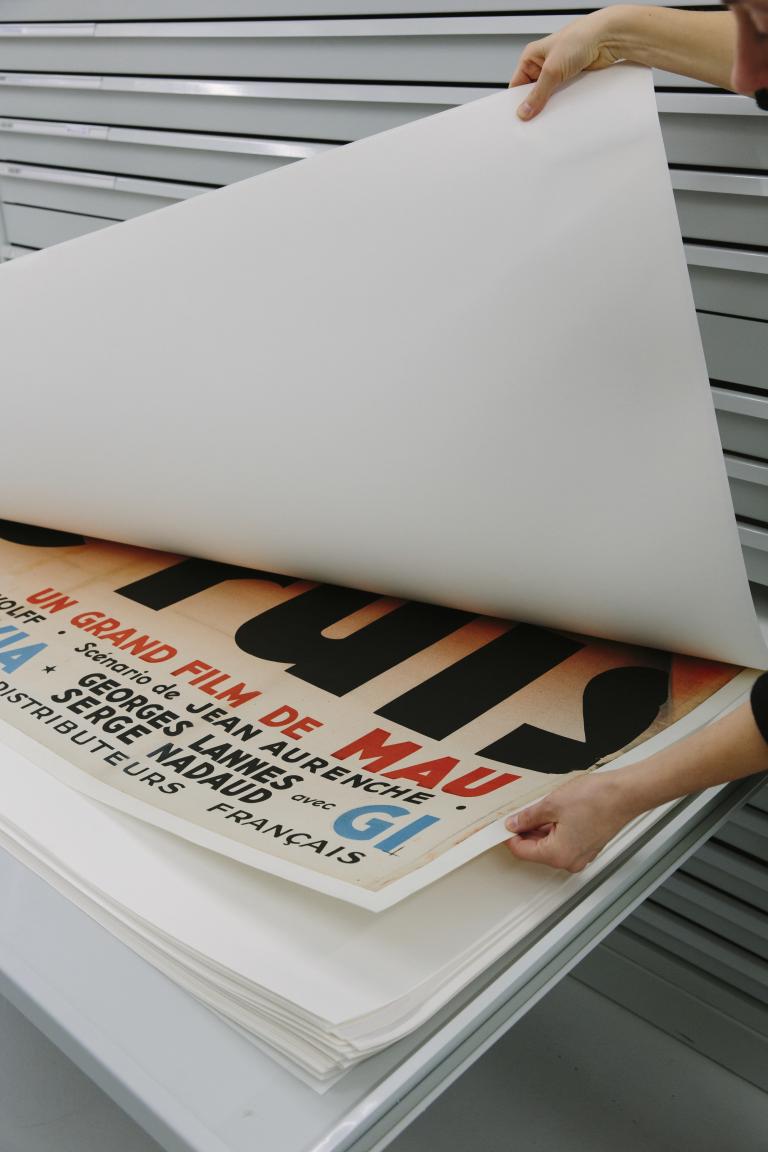
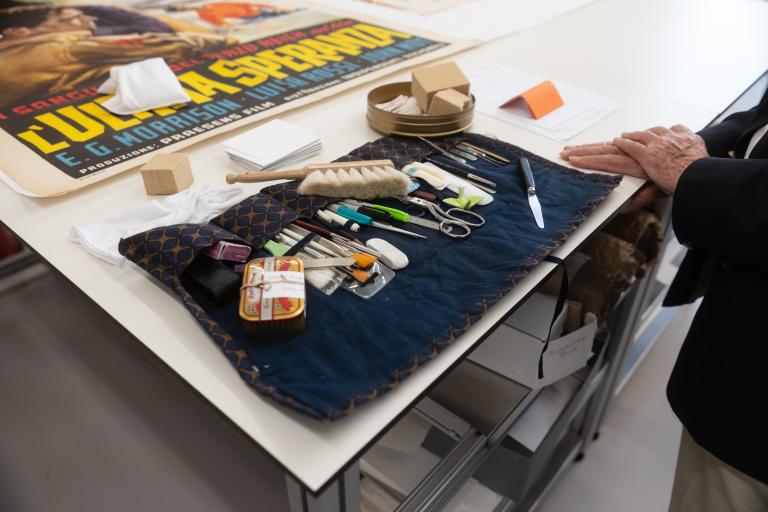
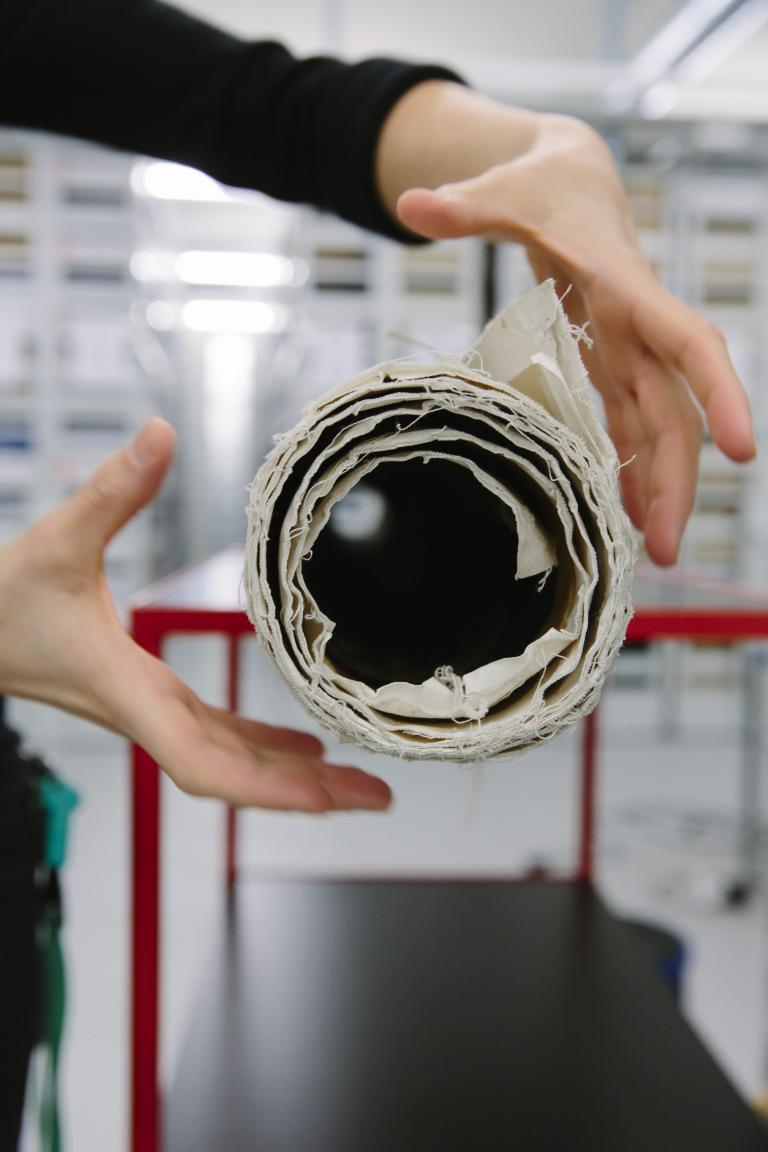
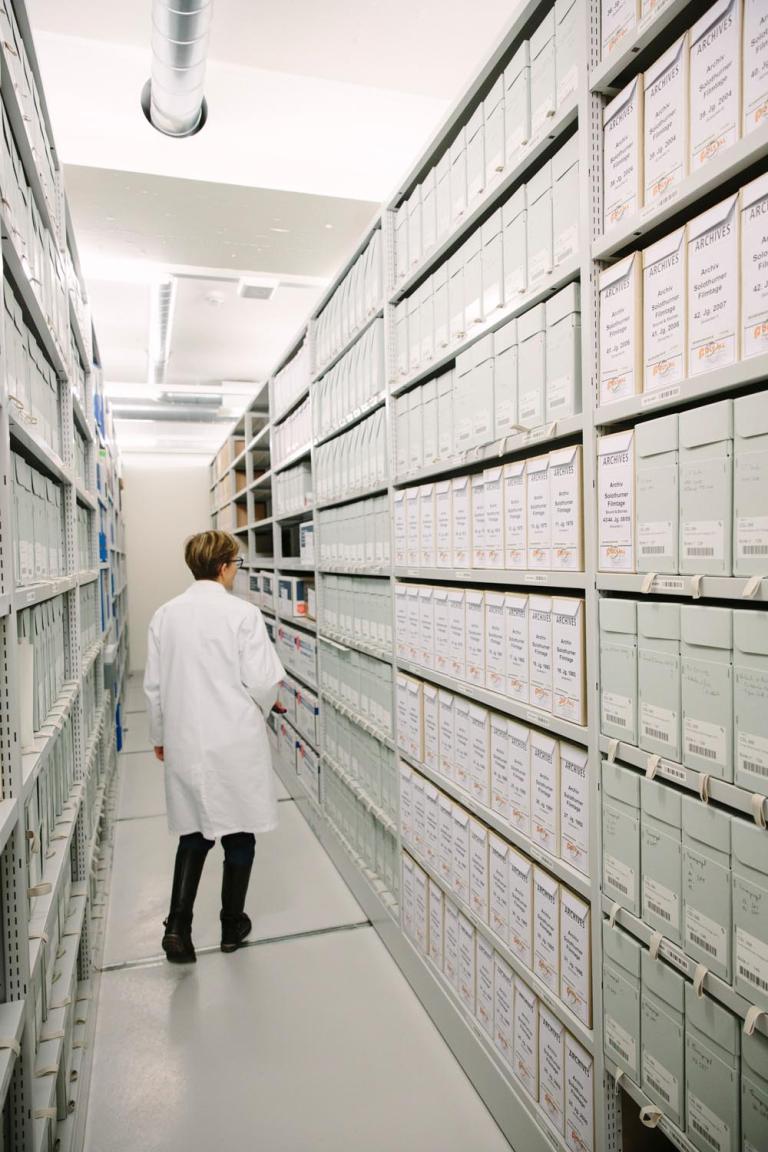

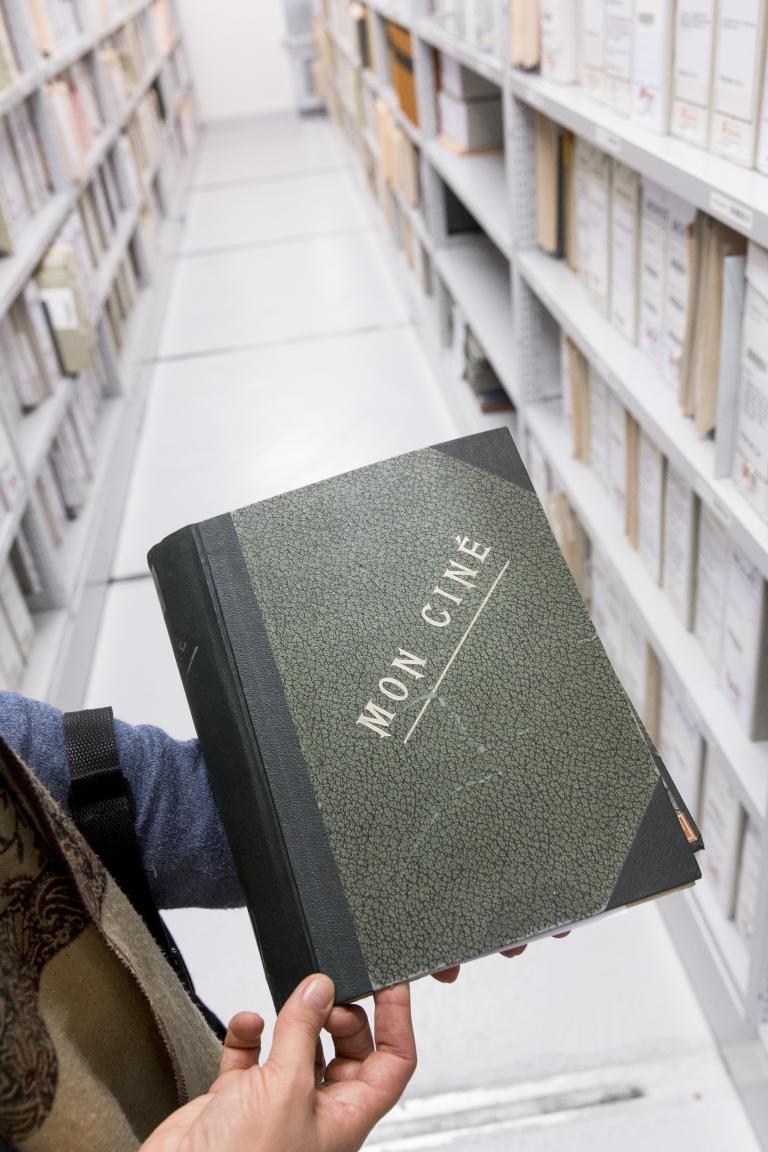
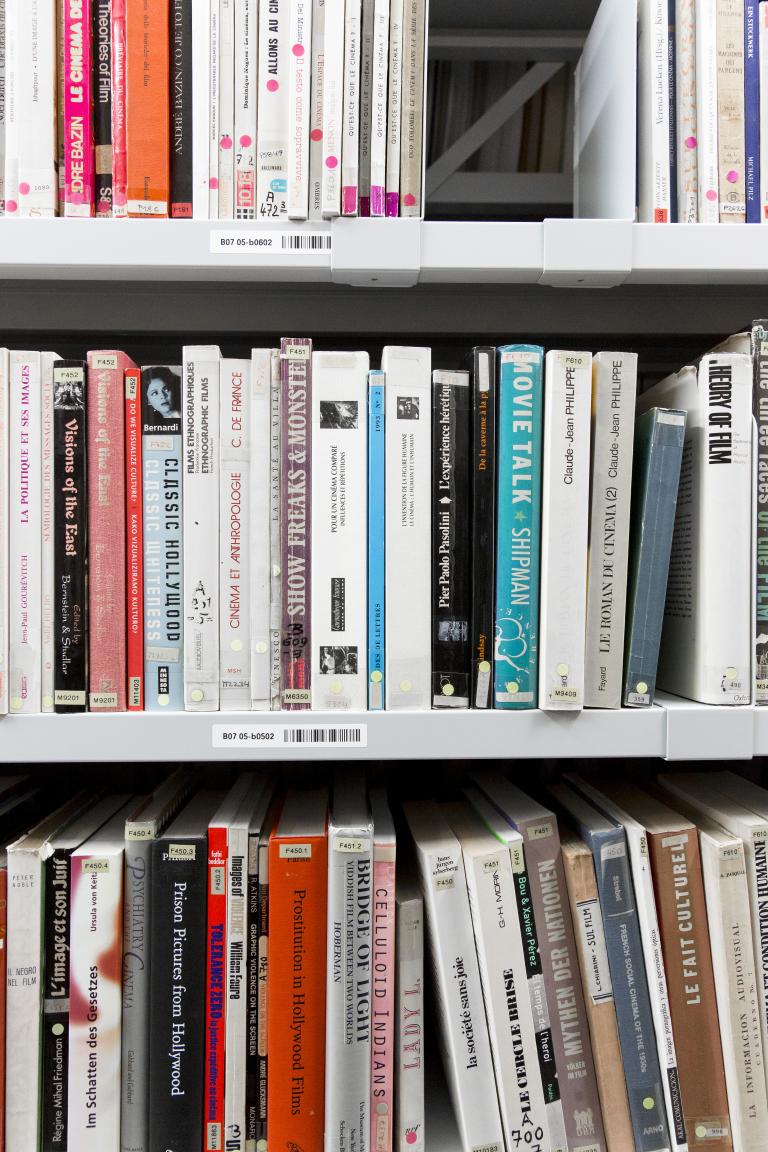
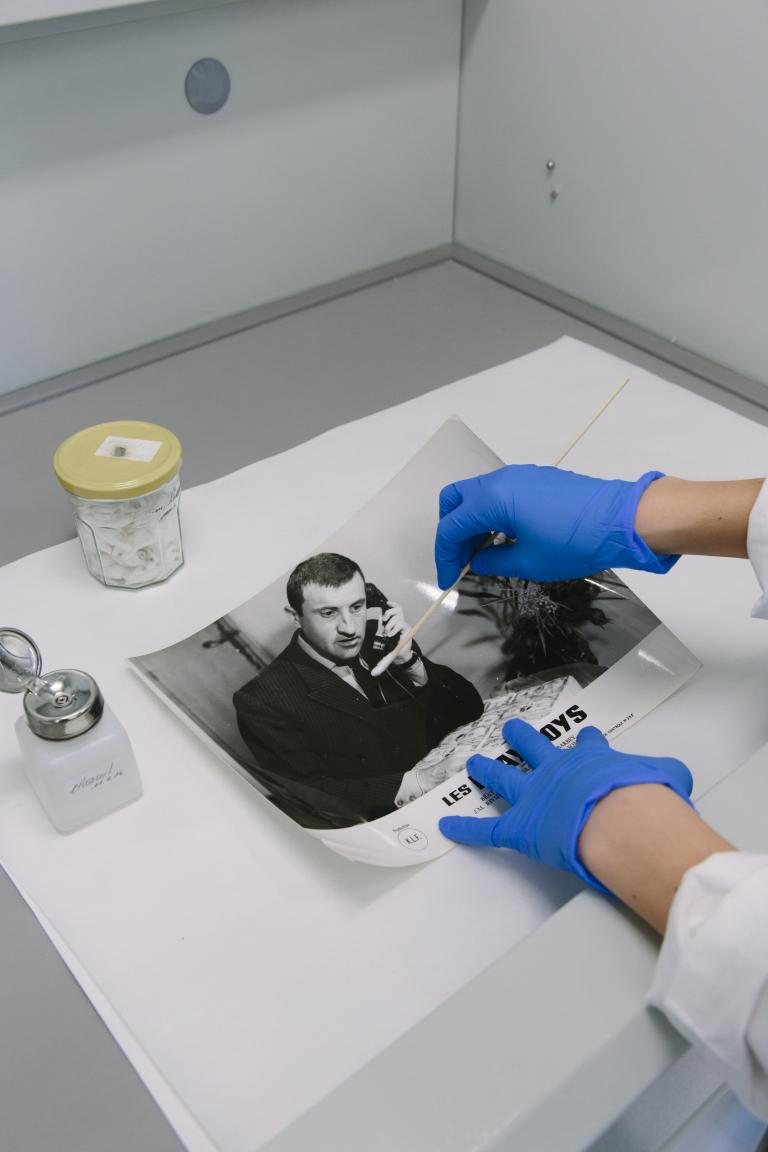
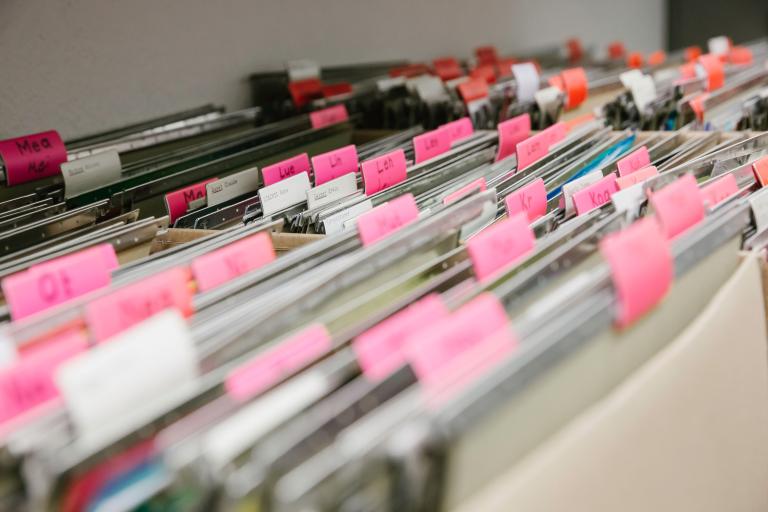
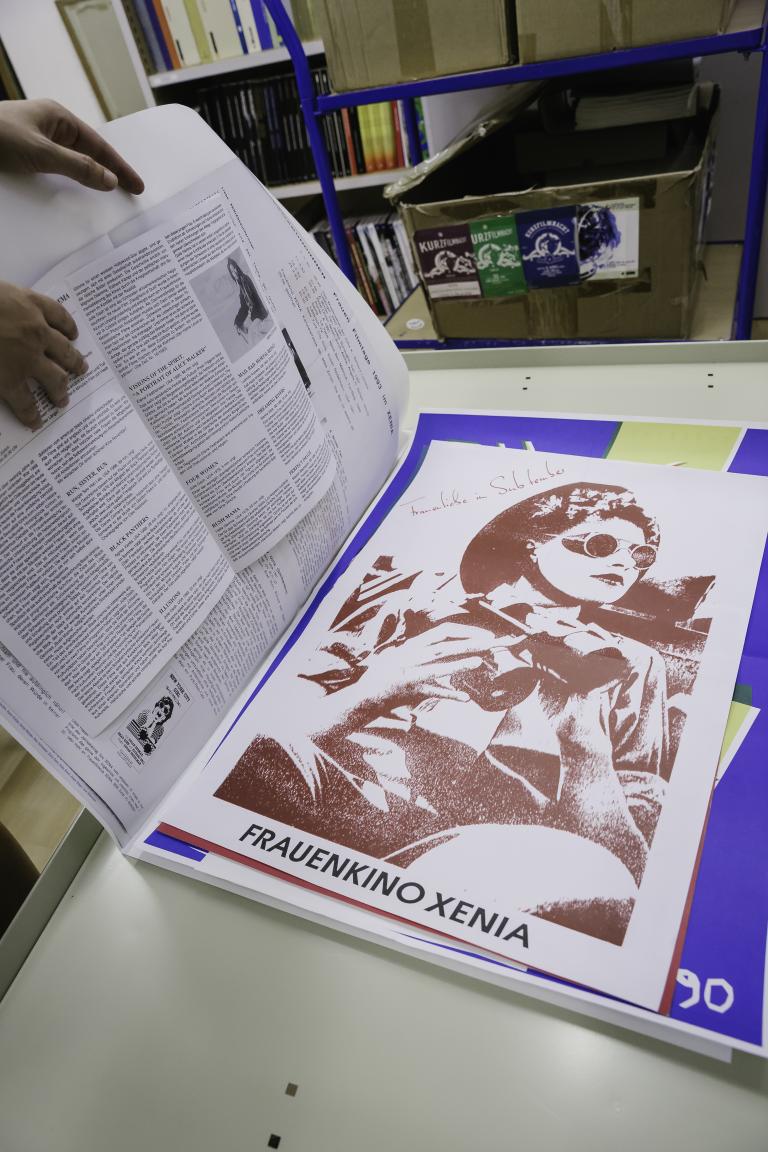
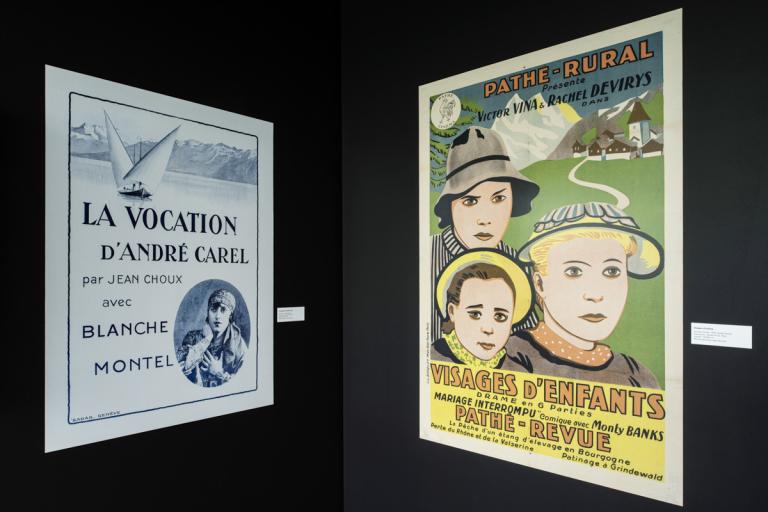
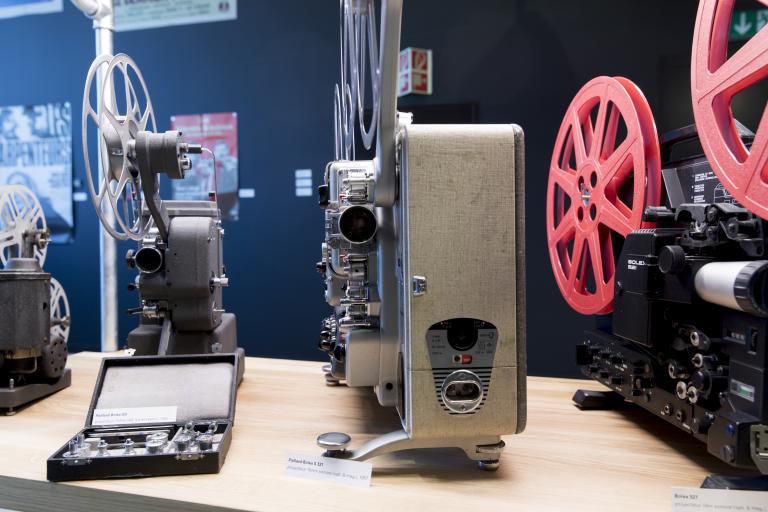
Number of images 1 / 15
Documents on Filmgilde Bern from the 1940s © Cinémathèque suisse / Carine Roth
Collection management
This sector includes the archives, museum collections and the documentation and information centre. It holds documents that help study the production, direction and distribution of films in Switzerland, and the history of institutions, associations and festivals. Developed over time thanks to privileged contacts with individuals, companies and umbrella organisations in the sector, in Switzerland and abroad, the collections are characterised by their richness and eclecticism, but also by their multilingualism - a Swiss specificity. The holdings continue to grow in line with the institution's collection policy.
The collections are preserved and described by documentalists, iconographers, librarians and archivists based in Penthaz and Zurich. The documentation centre and library contain Swiss and international publications, including hundreds of rare books, journals and a number of specialised newspapers and magazines. In addition, there are 180,000 documentary files containing over 5 million press clippings and promotional materials, reflecting the aesthetic and critical trends of different periods.
Study, research and publication of collections
The Cinémathèque suisse’s collections include physical and digital documents that allow the study and promotion of Swiss and international film history through academic work, publications and exhibitions in collaboration with various partners.
Conservation and restoration
Conservation and restoration work is defined according to priority criteria for the preservation of works and documents that are representative of the history of cinema, from a technical, social or artistic point of view. Every year, the sector restores more than 300 photos, posters, prints, glass plates and autochromes in its own workshop. It also deals with the safeguarding of collections and preventive conservation.
Digital heritage
In addition to preserving physical documents, the institution also has the dual mission of digitising analogue collections and ensuring the long-term digital archiving of native digital files. To meet this challenge, digital solutions are implemented through constant technological monitoring, migration and optimisation. Each type of object requires specific technical attention, which is why the laboratory is equipped with six digitisation stations to deal with this complex process. The workflow is similar at each station: calibration, digitisation, quality control and digital archiving of the computer files generated. Artificial intelligence (machine learning) allows the recognition and transcription of handwritten texts. Every year, over 10,000 pages and objects are digitised using state-of-the-art technology.
Collection coordination
This sector manages the incoming and outgoing items of the Non-Film Department. Every year, the department receives or acquires archival material, books, DVDs and periodicals, photos, posters and documents, which are received and packaged in Penthaz or Zurich. Larger items such as cameras, projectors and promotional material are stored in a former military bunker near Schlierbach, in the canton of Lucerne.
For more information
The department welcomes many visitors each year from the fields of research, media, publishing and museums. The Non-Film collections can be consulted on site in Penthaz and Zurich, by appointment only, and on the online platforms Caspar, E-Periodica and Renouvaud.


